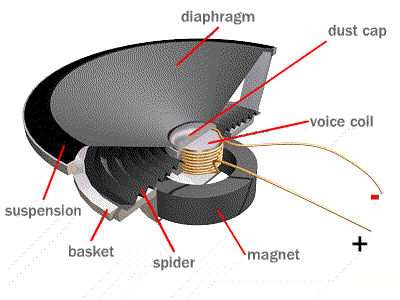Search This Supplers Products:Magnetic materials, magnetic equipment and devicesAuto Partstelecom devicesElectronicselectricalsmetals
-
In order to prevent the surface oxidation of NdFeB, the coating will be used to protect its surface. Compared with Zinc and Nickle plating, passivation and phosphating are relatively rarely used, especially phosphating. Of course, phosphating is not a 100% guarantee that the surface of NdFeB is not rusty, there are various reasons for still rust after phosphating. Sometimes, phosphating and passivation will combine to make oxidation resistance better.
time2021/01/14
-
In the production of oilfield construction, the welding of magnetized tube is often encountered. Due to the large magnetic bias when welding the magnetized tube, the weldability is poor.
This article mainly introduces the use of demagnetization shielded metal arc welding of direct current (DC), alternating current (AC), electromagnet or permanent magnet for welding magnetized tube.time2021/01/20
PublisherEvan
-
Due to the sunlight, hot air rises and cold air is coming. The flow of air forms wind. When the air moves quickly in the form of wind, the particles in the air also move quickly. Therefore, people began to use airflow to make wind turbines.
time2021/01/28
-
Materials that respond to a magnetic field in a certain way are called magnetic materials. The softness or hardness of magnetic materials does not indicate the mechanical properties, but magnetic properties. Permanent magnetic materials are the first hard magnetic materials discovered and used. Soft and hard magnetic materials have their own characteristics.
time2021/01/30
-
An introduction of TWS earphone.
time2021/01/31
PublisherWlliam Chang
-
-
The pull force of the magnet is mainly determined by its own performance, size, structure and shape of the magnet, and also determined by other metal parts.
time2021/02/25
-
Passivation treatment is a kind of surface treatment commonly used in our daily life.
time2021/02/26
PublisherGordon
-
-
The magnet will inevitably produce some bumps during the handling and turnover process, resulting in some small chips and break corners. So will these break corners have an impact on the application, and how great is the impact?
time2021/04/26
PublisherEvan
-
-
-
Geomagnetic declination refers to the angle between the magnetic north and true north anywhere on the earth. When the local magnetic north is eastward, the geomagnetic declination is positive, otherwise it is negative. In most areas of mainland China, the geomagnetic declination is between -10° and +2°. In Taiwan, it is about -4°~-3°.
In fact, in permanent magnets, there will be some deviations between the magnetization direction of the magnet and the actual physical direction.time2021/05/02
PublisherGordon
-
NdFeB Magnet need surface treatment before use, because of its' easy to oxidize characteristics
time2021/05/29
PublisherEvan
-
Iron is ferromagnetic and can be attracted by magnets, so many people will assume that iron-containing blood must also be magnetic. Is blood really attracted by the magnetic field?
time2020/05/25
PublisherKobin
-
-
Excessive carbon dioxide leads to climate change that has greatly threatened the survival of human beings on the earth. Only by developing green and low-carbon can this threat be alleviated. At the same time, this is also an opportunity for the development of the magnet industry.
time2021/06/28
PublisherEvan
-
The role of optical sensors and radar sensors in the runway foreign body detection system
time2021/07/25
-
The DC motor is a device that realizes the mutual conversion between DC electric energy and mechanical energy. According to the purpose, it can be divided into two types: DC motor and DC generator. Among them, the motor that converts mechanical energy into DC power is called a DC generator.
time2021/07/23
PublisherEvan
-
The reduction in cost means the enlargement of profit margins, and it will have stronger competitiveness in the market. Here we discuss how to reduce costs healthily and effectively from the aspects of management improvement, process optimization, technological innovation, and manufacturing innovation.
time2021/09/24
PublisherEvan
-
NdFeB magnets contain rare earth element neodymium, a kind of active metal, which is easily oxidized in humid air. Therefore, NdFeB magnets are usually surface treated, such as electroplating. For surface treatment, we have some test methods to check whether it meets our requirements.
time2021/11/29
PublisherEvan
-
What's the difference between moving coil earphones, moving iron earphones, and coil iron earphones?
Nowadays, most of the headphones used by everyone are moving coil or moving iron, and a small number of coil irons are headphones. What is the difference between them? What's the downside? Let's find out together.
time2022/03/23
-
There are not only "Phantom of the Palace Lady" but also "Scientific Shadow" on the red wall of the Forbidden City
time2023/07/28
PublisherGordon
-
Casting stress in AlNiCo magnet production can be divided into thermal stress and shrinkage stress. To minimize stress, simplify designs, ensure symmetry and uniform wall thickness. Employ simultaneous solidification techniques for equilibrium and prevention of thermal stress. Aging treatments like natural and thermal aging help eliminate stress. By combining these measures, high-quality AlNiCo magnets with minimal casting stress and superior performance can be achieved.
time2024/04/30
-
Silicon steel is the core material of motors and transformers. It can be said as the most core material driving modern industry and is irreplaceable. Due to extremely high technical threshold, it has been monopolized by the world's industrial powers for a long time. China has been developing silicon steel for nearly 40 years, of which the first 20 years were mainly in the digestion and absorption stage. Last 10 years, it has achieved independent research and development and industrialization.
time2024/06/28
PublisherGordon

























